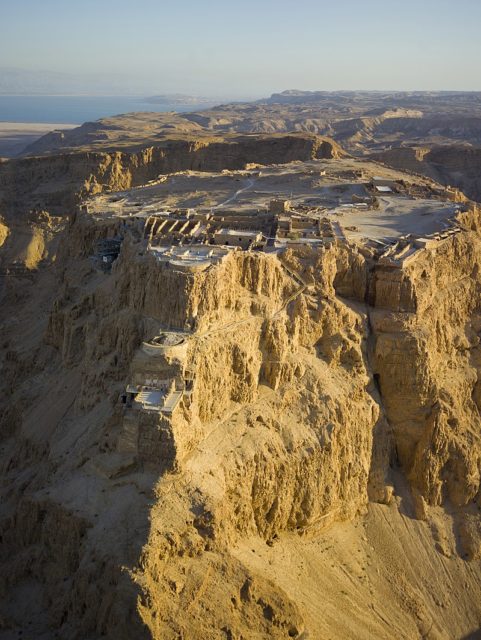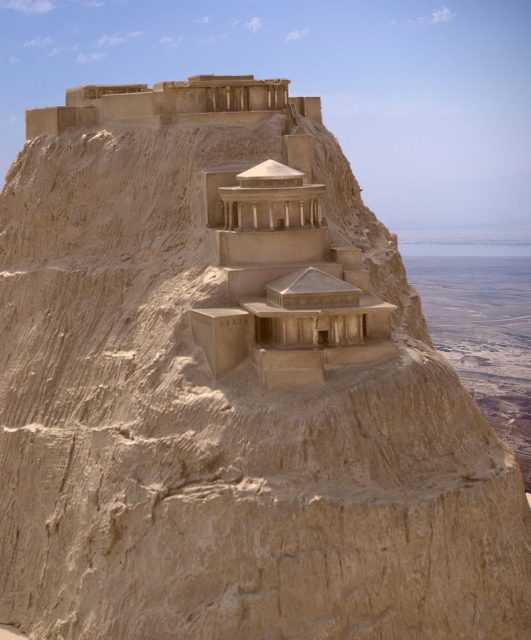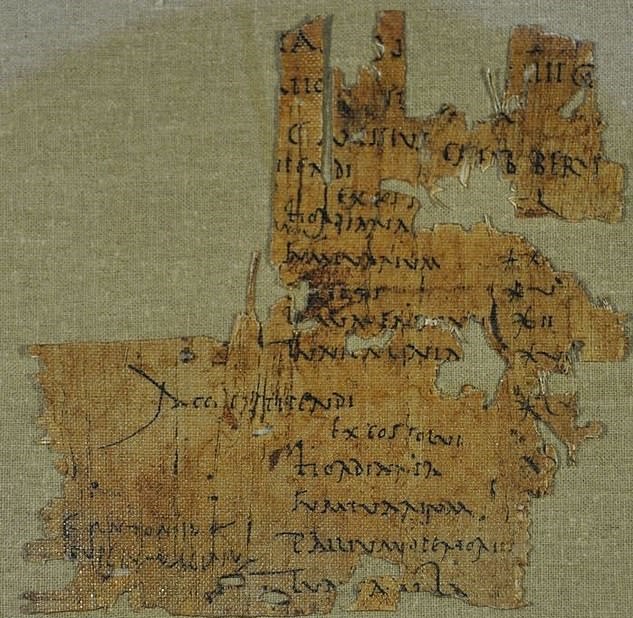Roman soldier Gaius Messius fought in a major battle. What did he earn for his trouble…? Nothing, according to an ancient payslip!
Most people complain about their pay, However when it comes to Ancient Rome those gripes are on a whole other level. The withered document is 1,900 years old, made of papyrus and was found at Masada, a former mountain stronghold in the Judean Desert, Israel.
Messius’ face no doubt fell when he read the details of his due. As with today’s slips, deductions were on the large side.
Task & Purpose – reporting on an original Tweet by Dr Jo Ball from March 2019 – says the solider was “left penniless immediately” by a sizeable cut that reduced Messius’ 50 denarii to a big fat zero.

The slip was translated and displayed by the Database of Military Inscriptions and Papyri of Early Roman Palestine.
What were the deductions for? Because costs covered things like military equipment and livestock fodder, “experts believe he was a legionary cavalryman and had to feed his horse and mule” according to The Daily Mail. Sounds like the animals ate better than their master!
Admin-wise, it mentions: “The fourth consulate of Imperator Vespasianus Augustus”… otherwise known as Vespasian, who ruled as Emperor between 69 and 79.
The dating of the payslip places it after the Siege of Masada (73 – 74 CE). While the fortress is a well-known tourist destination, it played host to this tragic conflict. Hundreds of Jews perished during the siege, part of the First Jewish-Roman War.
As detailed by the Mail, information about the siege comes solely from 1st century historian Flavius Josephus. When Romans moved into Israel, a Jewish uprising called The Great Revolt led to much destruction and bloodshed.
Jerusalem itself was destroyed in 70 AD, after which 960 rebels went to Masada, originally built on a plateau by Herod the Great between 37 – 31 BCE. Thousands of Romans hemmed them in, creating “a siege wall, and a ramp on a slope of the Western side of the mountain made of earth and wooden supports” according to History.com.
Camps were also set up, providing archaeological curiosities to modern day history hunters. One of these, presumably, is Messius’ payslip.
Shockingly, when all hope was lost for the embattled rebels they chose to commit suicide. 2 women and 5 children were among their number.
The area was believed lost until 1828, when Biblical scholar Edward Robinson, with graduate Eli Smith, brought the area back to public attention. As reported by the History Things website, the mountain was ascended by Samuel W. Wolcott and W.Tipping in 1842.
A probe excavation – test drilling in advance of potentially dangerous work – was carried out by Shmarya Guttman in 1959. Ancient Origins notes that “Israeli archeologist Yigael Yadin first excavated the site between 1963 and 1965.”

Now Masada is a UNESCO World Heritage Site, containing a national park which stretches across 840 acres as stated by History.com. The Hebrew word “Masada” translates as “strong foundation or support”.
Ancient Origins writes about a similar discovery to the payslip uncovered in Mesopotamia, 2016. This one trumps the Roman papyrus, being a cuneiform tablet dated 3,000 BC… the oldest record of payment found to date. And not exactly something that can fit in someone’s pocket!
Cuneiform was a pictorial language. On its surface was the “ration” of a human head plus bowl. Payment, which comprised of beer, beer and even more beer, was represented by a “conical vessel”. Talk about having a cold one after a long day.
Another Article From Us: German Woman, Secretary to Camp commandant, is Charged
It isn’t known whether Gaius Messius went on to other things, and indeed a bigger salary. His participation in a terrible chapter of ancient history doesn’t make him someone to root for. Yet any worker can empathize with what looks like the world’s most measly payslip…
